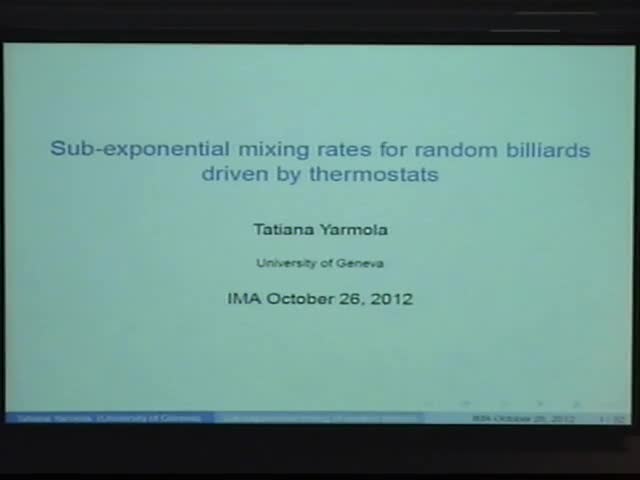Sub-exponential mixing rates for random billiards driven by thermostats.
Presenter
October 26, 2012
Keywords:
- Motion of particles
MSC:
- 78A35
Abstract
Rigorous derivations of macroscopic heat conduction laws from the microscopic dynamics of mechanical particle systems coupled to heat reservoirs require good mixing properties of the stationary distributions. For many such systems in nonequilibrium, i.e., with two or more unequal heat reservoirs, the proof of the mere existence of stationary distributions is nontrivial due to the non-compactness of the phase space. It is relatively easy to envision scenarios under which a particles slow down (freezing) or speed up (heating), which may push initial distributions towards zero or infinite energy levels and ultimately violate convergence.
We consider a class of mechanical particle systems interacting with thermostats. Particles move freely between collisions with disk-shaped thermostats arranged periodically on the torus. Upon collision, an energy exchange occurs, in which a particle exchanges its tangential component of the velocity for a randomly drawn one from the Gaussian distribution with the variance proportional to the temperature of the thermostat; the normal component of the velocity changes sign.
We show that a stationary distribution exists, is unique, and is absolutely continuous with respect to the Lebesgue measure. In addition, all initial distributions converge to the stationary distribution and a large subclass of initial distributions does so at sub-exponential rates. The sub-exponential rates of convergence are primarily due to the influence of slow particles on the system.
